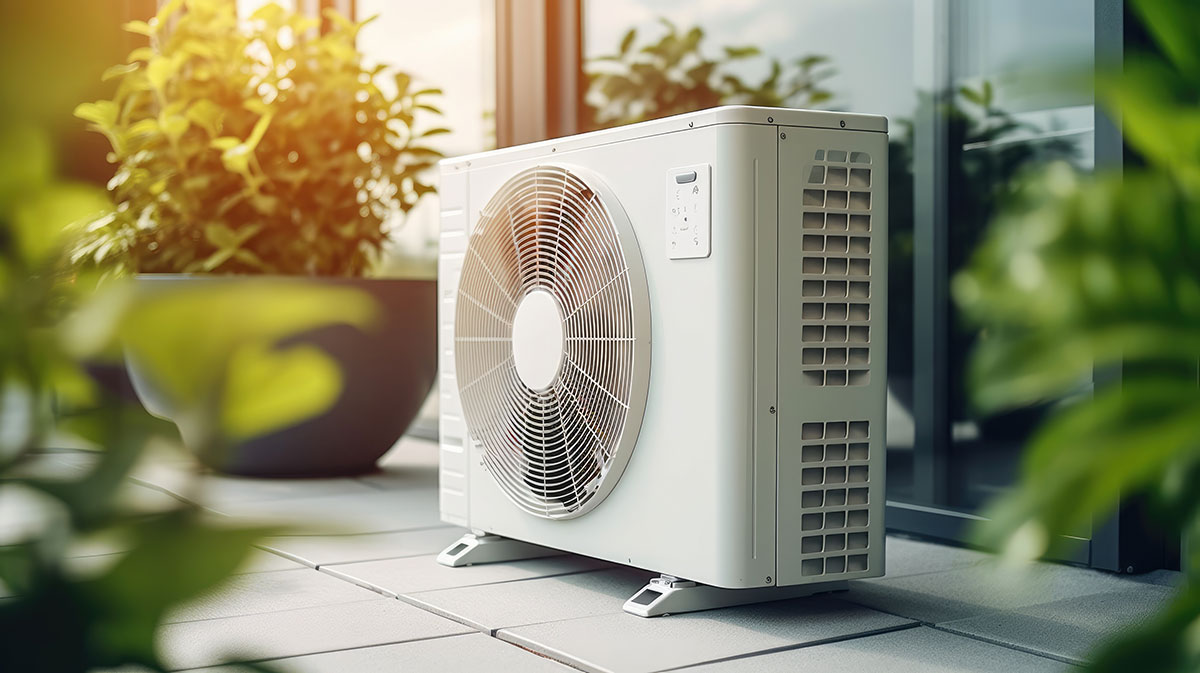As a homeowner or business owner, choosing the right HVAC system is a major decision that impacts your comfort, energy efficiency, and long-term costs. When considering heating and cooling options, you’ll likely come across two primary choices: heat pumps and traditional HVAC systems. Each has its pros and cons, and the best option depends on your specific needs, climate, and budget. In this blog, I’ll break down the key differences between heat pumps and traditional HVAC systems to help you make an informed decision.
1. Understanding Heat Pumps
Heat pumps are an energy-efficient alternative to traditional heating and cooling systems. Unlike furnaces that generate heat by burning fuel, heat pumps work by transferring heat from one place to another. In the summer, they function like an air conditioner by removing heat from your home. In the winter, they extract heat from the outside air (even in cold temperatures) and transfer it indoors.
Advantages of Heat Pumps:
- Energy Efficiency – Since heat pumps move heat rather than generate it, they consume less energy than traditional HVAC systems.
- Lower Operating Costs – Because they use electricity efficiently, heat pumps can lead to lower utility bills, especially in moderate climates.
- Environmentally Friendly – Heat pumps reduce reliance on fossil fuels, making them a more sustainable option.
- All-in-One Solution – A single unit provides both heating and cooling, eliminating the need for a separate furnace and air conditioner.
Disadvantages of Heat Pumps:
- Less Effective in Extreme Cold – In very cold climates, heat pumps may struggle to extract enough heat from the outside air, requiring supplemental heating.
- Higher Upfront Costs – While heat pumps can save money over time, their initial installation costs are often higher than traditional systems.
- Dependence on Electricity – Unlike gas furnaces, which can continue to operate during power outages, heat pumps rely entirely on electricity.
2. Understanding Traditional HVAC Systems
Traditional HVAC systems typically consist of an air conditioner and a separate heating unit, such as a furnace or boiler. These systems are commonly found in homes across the U.S. and have been the go-to option for decades.
Advantages of Traditional HVAC Systems:
- Powerful Heating in Cold Climates – Furnaces generate heat independently, making them more reliable in extreme winter conditions.
- Lower Initial Costs – Traditional HVAC systems tend to have a lower upfront price compared to heat pumps.
- Fuel Flexibility – Many furnaces run on natural gas, which can be more affordable than electricity in some regions.
Disadvantages of Traditional HVAC Systems:
- Higher Energy Consumption – Furnaces that burn fuel can be less energy-efficient compared to heat pumps.
- Requires Separate Systems for Heating and Cooling – Unlike heat pumps, traditional HVAC systems require a furnace and an air conditioner, leading to more maintenance and higher installation costs over time.
- Potential for Carbon Monoxide Risks – Gas-powered furnaces require proper ventilation to prevent carbon monoxide leaks.
3. Which System is Right for You?
The decision between a heat pump and a traditional HVAC system depends on several factors:
Climate Considerations
- If you live in a moderate climate where winters are not extremely harsh, a heat pump is an excellent choice for its energy efficiency and cost savings.
- If you experience harsh winters with temperatures frequently dropping below freezing, a traditional furnace may provide more reliable heating.
Energy Efficiency Goals
- If reducing your carbon footprint and maximizing energy efficiency are top priorities, a heat pump is the better choice.
- If you prefer a time-tested system with consistent performance, a traditional HVAC setup might be a better fit.
Upfront Budget vs. Long-Term Savings
- If you’re willing to invest more upfront for long-term savings, a heat pump could be the right option.
- If you’re looking for a lower initial cost, a traditional HVAC system might make more financial sense.
4. Making the Right Choice
Both heat pumps and traditional HVAC systems offer benefits, and the best option ultimately depends on your specific needs. If energy efficiency, sustainability, and long-term savings are important to you, a heat pump could be the right fit. However, if you live in a colder climate and need powerful heating, a traditional system might be the better choice.
At Airheads HVAC, we specialize in helping homeowners and business owners choose the best HVAC solutions for their needs. Whether you’re interested in a heat pump or a traditional system, we’re here to provide expert guidance and installation services.
If you’re unsure which option is right for your home, contact us today for a consultation. We’ll help you make a decision that keeps your home comfortable while maximizing efficiency and savings.
